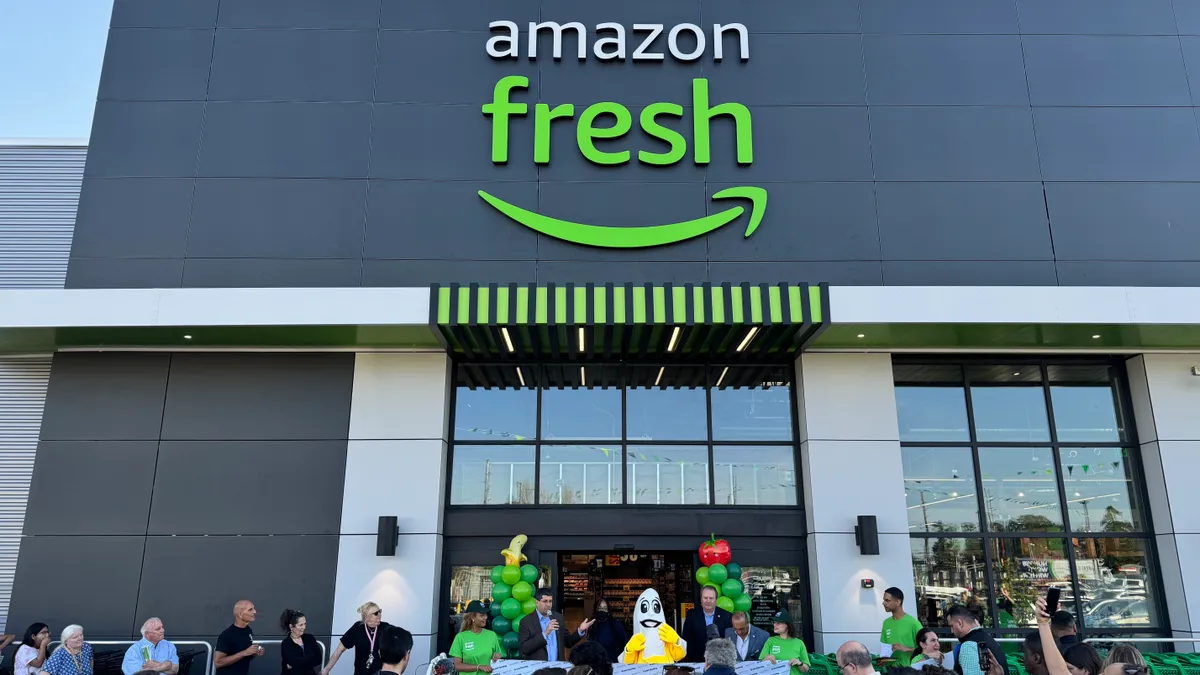WASHINGTON, D.C. — At the 6th annual National Maternal and Infant Health Summit on Sept. 19, advocates, labor professionals and politicians imbued their panels with a sense of urgency.
Not only are working mothers buckling under the lack of structural support in general: The clock is running out on pandemic-era federal child care funding, leaving working parents with sparse benefits options in a lurch.
An estimated 70,000 child care programs are set to shutter on Sept. 30, according to an analysis by The Century Foundation. Through the COVID-19 relief that was the American Rescue Plan Act, President Joe Biden’s administration allocated $39 billion to child care providers.
Panelists including Rep. Ilhan Omar, D-Minn., addressed this challenge. “We have to fight to make sure none of these benefits are cut,” she told the audience. As vice ranking member of the Congressional budget committee, Omar said, she’s observed how the cuts being proposed by her Republican colleagues are “going to have a devastating impact on so many communities.” (That same day, House Republicans released their plan, which seeks to bring balance to the federal budget by tightening up discretionary and social safety net spending, per a Roll Call report.)
The budget resolution “makes a mockery of our country and the ways in which we should be caring for the most vulnerable,” she continued.
“There is often a thought process by policy leaders that we should just leave it to industry to create these competitive benefits — that government doesn't have a role. I believe it is both,” Omar stated. Advocates and speakers at the healthcare summit offered ways that employers and HR can step up to the plate as approximately 3.2 million children are slated to lose access to care.
Working mothers and the double shift
Rep. Omar was candid about how the laws on the books, her employers and her community failed to support her through parenting challenges, from a miscarriage to child-rearing.
“Even though I had great bosses, I've never worked at a place where I got parental leave,” she said. She ultimately had family members who could step in to help with child care. Still, one of her first moves when she became a boss was to facilitate 16 weeks of paid parental leave for her staff, she explained.
“I know what it feels like to use your vacation time — to be off for two weeks and go back to work. That is not a sustainable or a healthy thing for a mother,” Omar said.
McKinsey and Co. researchers in the most recent Women in the Workplace report continually emphasized the importance of employers supporting working parents — particularly through ensuring child care.
“Working mothers have always worked a ‘double shift’ — a full day of work, followed by hours spent caring for children and doing household labor,” researchers said. Due to the pandemic, the support systems that have made this possible — especially school and day care — have been disrupted, they added.
Burnout is disproportionately likely for working mothers, particularly with mothers being “1.5 times more likely than fathers to be spending an additional three or more hours per day on housework and childcare,” McKinsey researchers added.
Some wins for working parents remain on the books
Early in the session, D.C. Mayor Muriel Bowser underscored the importance of women’s participation in the workplace. “As you said, Mayor, women are powering the economy,” Wendy Chun-hoon, Omar’s fellow panelist and the U.S. Department of Labor’s director of the Women’s Bureau, acknowledged.
“And also, we don't have everything we need.” Nodding to what Omar said previously, Chun-hoon added, “I actually think it is in the strong partnership between government and employers [that we] actually find that balance.”
Chun-hood highlighted some labor law wins for working parents. “What was really important … In the past year, Congress took a huge step to pass a long-standing proposal to support nursing workers, to make pumping on the job easier,” she said, referring to the Providing Urgent Maternal Protections for Nursing Mothers or “PUMP” Act. The PUMP Act went into effect in December 2022.
Chun-hoon also noted Congress passing “more protections when it comes to reducing discrimination if you’re a pregnant worker or if you’re a new parent,” likely referring to the Pregnant Workers Fairness Act, which took effect in June.
“All of those things are really important and the implementation of those things is that partnership between public policy and employer practice,” Chun-hoon said. She emphasized the importance of dialogue. “[Ask employees] ‘What are the accommodations that you need? Is it a stool to sit on at the register? Is it access to water? Is it access to other flexibilities, in terms of your schedule?’” she continued.
DOL women’s bureau chief uses D.C. as a case study
Subsidized parental leave works in D.C., according to Chun-hoon, “where you're leveling the playing field by establishing important public policy, [like] paid sick days.”
For D.C. residents, paid family leave is now a reality: As of Oct. 1, 2022, the District’s Paid Leave Act covers two weeks of paid time off for pregnancy and 12 weeks of paid time off to “bond with a new child,” including biological, adopted and foster children, per the D.C. Department of Employment Services. It also covers 12 weeks to care for a family member or one’s own “serious health condition.”
Beyond family leave, sick leave is crucial for parents — in certain states, but also through employer-provided benefits — because that leave often covers time off for sick children. “How many times do you go to the doctor with your kid for well visits in the first year of life? It's more than a dozen times,” she said.
Echoing Omar on the imperative to care for children, shared by the private and public sector, she stated, “I think [sick leave] really is the crux of that partnership between employers and public policy.”





















